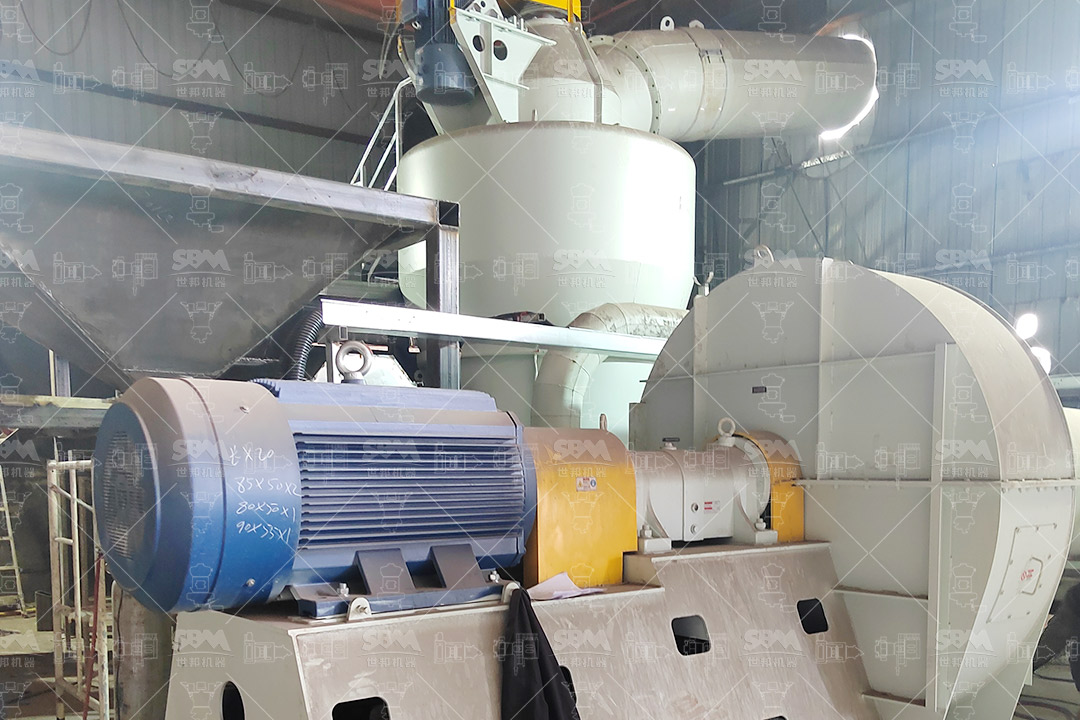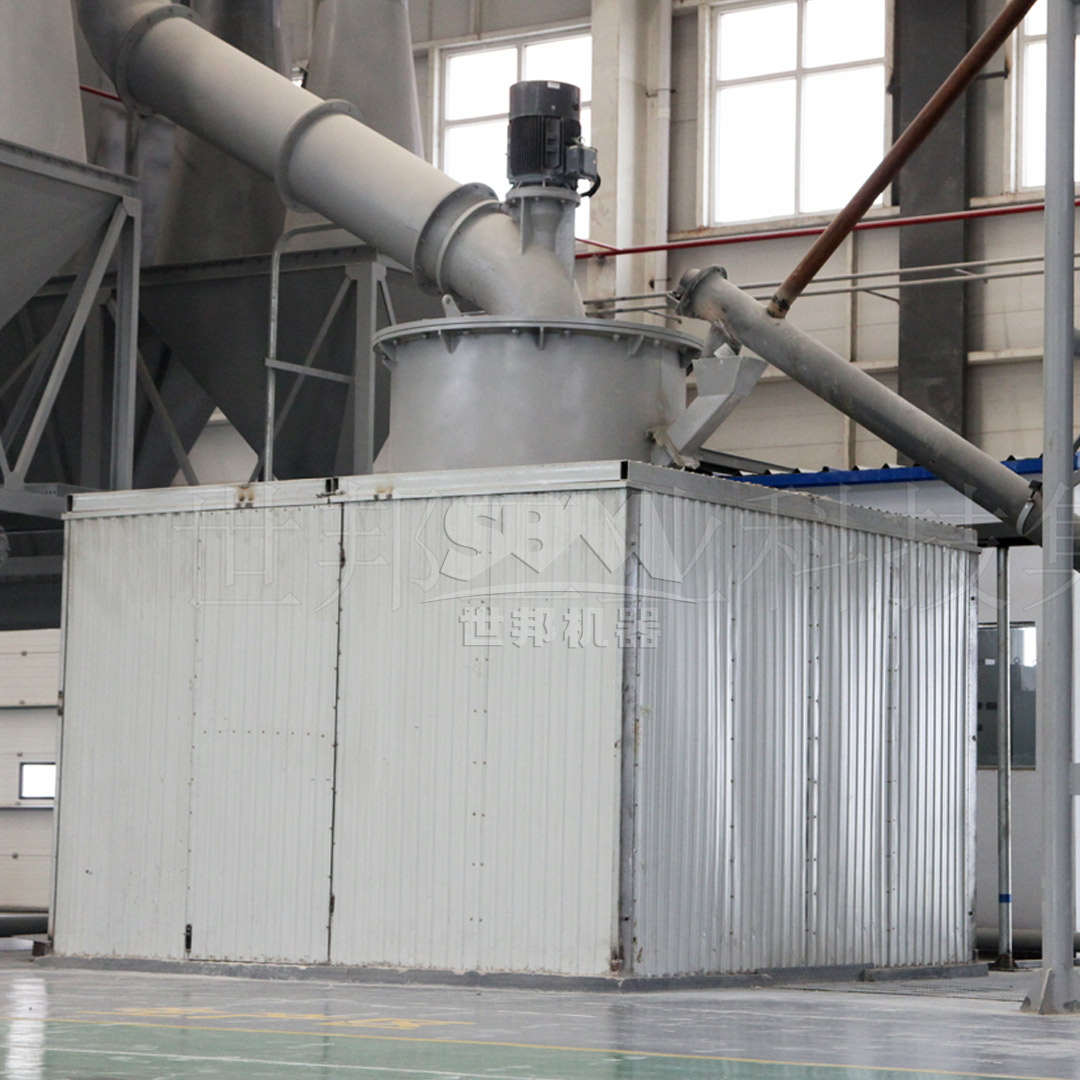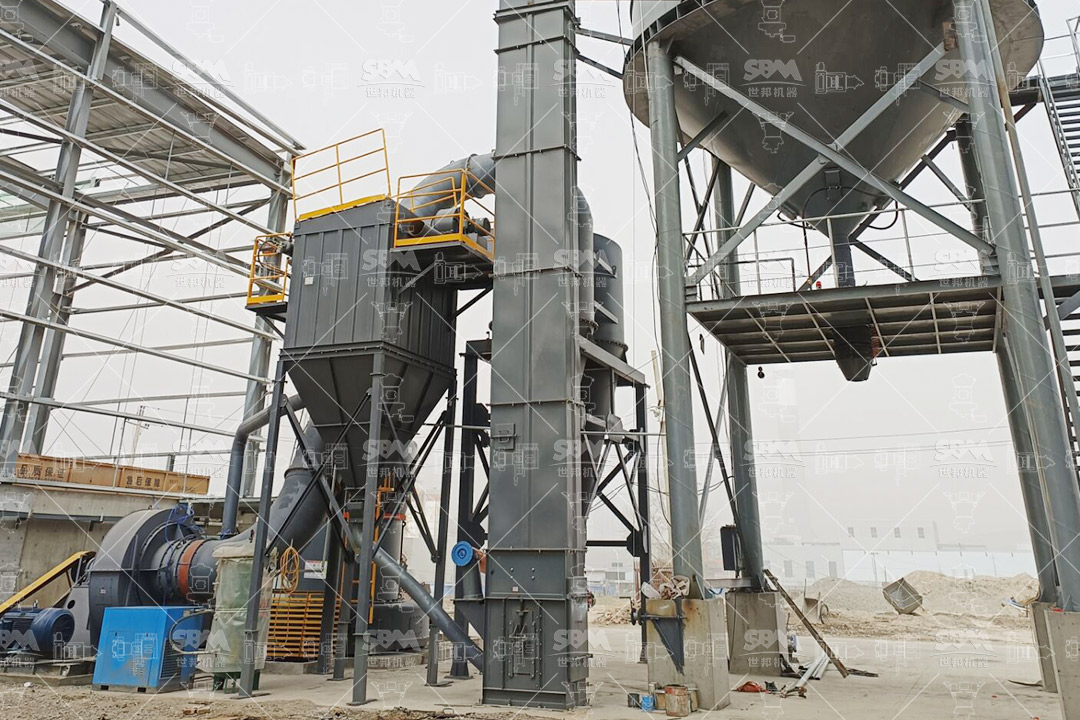Bentonite clay plays a crucial role in foundry sand preparation, serving as the primary binding agent that provides the necessary green strength, dry strength, and thermal stability for mold formation. The quality of bentonite grinding directly impacts the performance of foundry sands, making the selection of appropriate grinding equipment a critical decision for foundry operations. This comprehensive guide examines the key factors in choosing the right bentonite grinding mill for optimal foundry sand preparation.
Bentonite’s unique swelling properties and colloidal characteristics demand specific grinding considerations. The montmorillonite structure requires careful processing to preserve its binding capabilities while achieving the desired particle size distribution. Typical foundry applications require bentonite powders in the range of 200-325 mesh (74-45μm), though some specialized applications may demand finer or coarser specifications.
The grinding process must maintain the crystalline structure of bentonite while ensuring consistent particle size distribution. Over-grinding can damage the platelet structure, reducing swelling capacity, while under-grinding may result in inadequate binding properties. Moisture content control during grinding is equally important, as bentonite’s hygroscopic nature affects both processing and final product performance.

Foundry operations vary significantly in scale, from small job shops to large automotive foundries processing thousands of tons annually. The grinding mill selection must align with production demands while allowing for future expansion. Consider both current requirements and projected growth when evaluating capacity.
Consistent particle size distribution is essential for uniform binding performance in foundry sands. The grinding system must provide precise control over the final product fineness and maintain this consistency throughout operation. Look for mills with advanced classification systems that can reliably separate particles to the required specifications.
Grinding operations represent significant energy consumption in foundry sand preparation. Modern grinding technologies offer substantial improvements in energy efficiency compared to traditional methods. Evaluate the total energy consumption per ton of processed bentonite, including auxiliary equipment such as classifiers and dust collection systems.
The wear parts consumption, maintenance frequency, and operational requirements significantly impact the total cost of ownership. Consider mills with durable wear components, easy maintenance access, and automated monitoring systems to minimize downtime and operational expenses.
| Mill Type | Optimal Fineness Range | Capacity Range | Energy Efficiency | Maintenance Level |
|---|---|---|---|---|
| Ultrafine Mills | 325-2500 mesh | 0.5-25 t/h | High | Medium |
| Trapezium Mills | 30-325 mesh | 3-45 t/h | Medium-High | Low-Medium |
| Vertical Roller Mills | 30-325 mesh | 3-250 t/h | High | Medium |
| Ball Mills | 0.074-0.8mm | 0.65-450 t/h | Medium | High |
For foundries requiring superior bentonite quality with precise particle size control, the SCM Ultrafine Mill represents an excellent solution. This mill system processes bentonite to fineness levels between 325-2500 mesh (45-5μm), making it ideal for advanced foundry applications where maximum binding efficiency is critical.
The SCM series features a vertical turbine classifier that ensures precise particle size distribution without coarse powder contamination. This is particularly important for bentonite grinding, where consistent particle size directly correlates with binding performance. The mill’s intelligent control system automatically monitors and adjusts for optimal product fineness, maintaining quality even with variations in raw material characteristics.
With capacity ranging from 0.5 to 25 tons per hour across different models, the SCM Ultrafine Mill suits various foundry scales. The energy-efficient design consumes 30% less power compared to conventional grinding systems, while the durable grinding components withstand the abrasive nature of bentonite, extending service life and reducing maintenance frequency.

For medium to large-scale foundry operations requiring consistent bentonite quality at higher production rates, the MTW Series Trapezium Mill offers an optimal balance of performance, efficiency, and reliability. This mill system processes bentonite to fineness levels between 30-325 mesh, perfectly matching standard foundry sand preparation requirements.
The MTW series incorporates several advanced features specifically beneficial for bentonite grinding. The curved air channel design reduces energy consumption while improving material flow, and the combined blade system minimizes wear part replacement costs. The cone gear transmission achieves 98% transmission efficiency, contributing to overall energy savings.
With capacity ranging from 3 to 45 tons per hour, the MTW series can accommodate the needs of most foundry operations. The mill’s robust construction and simplified maintenance design ensure continuous operation with minimal downtime, while the comprehensive dust collection system maintains clean working conditions and environmental compliance.
Bentonite typically contains 8-15% moisture as received, which must be considered in the grinding process. Some grinding systems can integrate drying capabilities, while others require pre-dried material. Evaluate the moisture content of your bentonite supply and select equipment that can handle the specific characteristics of your material.
Bentonite grinding generates significant dust that must be properly controlled. Modern grinding systems include integrated dust collection with efficiency exceeding international standards. Ensure the selected system meets local environmental regulations while maintaining operational efficiency.
Advanced control systems can optimize bentonite grinding by monitoring key parameters and adjusting operation accordingly. Look for systems with PLC controls, remote monitoring capabilities, and automated feedback loops for consistent product quality with reduced operator intervention.

A major automotive foundry recently upgraded their bentonite grinding system from traditional ball mills to modern vertical roller technology. The transition resulted in a 35% reduction in energy consumption, 50% reduction in maintenance costs, and significantly improved product consistency. The new system’s precise particle size control enhanced the quality of their foundry sands, reducing casting defects by 18% and improving overall production efficiency.
Selecting the appropriate bentonite grinding mill requires careful consideration of production requirements, quality specifications, and operational constraints. For most foundry applications, modern vertical mills and trapezium mills offer the best combination of efficiency, control, and reliability. The SCM Ultrafine Mill excels in applications demanding superior product quality and precise particle size control, while the MTW Series Trapezium Mill provides robust performance for standard foundry requirements at various production scales.
By understanding the specific needs of your foundry operation and matching them with the appropriate grinding technology, you can optimize your bentonite preparation process, reduce operating costs, and improve the quality of your foundry sands. Consult with grinding experts and consider pilot testing when possible to ensure the selected system meets your specific requirements.